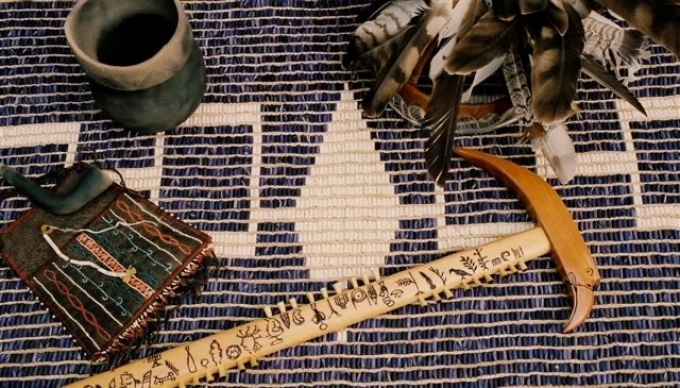What is Indigenous Studies?

Indigenous Studies at UB is an interdisciplinary department that informs solutions to the challenges confronted by our societies today.
The mission of the Indigenous Studies Department at UB is to foster excellence in:
- Indigenous-centered scholarship, research, and teaching at UB that is accountable and beneficial to the Haudenosaunee people of this territory.
- Multidisciplinary Indigenous-centered research and teaching that is accountable and beneficial to Indigenous nations, communities, and organizations in local, national and global contexts.
To translate the acknowledgement of our location on Haudenosaunee lands into meaningful action, UB’s Department of Indigenous Studies works to honor our obligations to the Indigenous Nations and to the treaties of this territory. The department recognizes Indigenous nationhood and sovereignty as foundational in our approaches to building ethical and productive research relationships with Native peoples and organizations both here and beyond this region. We are deeply committed to supporting present and future generations of Indigenous students and scholars. The Department of Indigenous Studies promotes research, educational and outreach initiatives aligned with community priorities to ensure the continuity of Indigenous knowledge and languages, and the health and sustainability of Indigenous people, land and water. Our students will:
- Learn about Indigenous peoples from Indigenous people
- Learn about Indigenous peoples from scholars who center the lived experiences of Indigenous people
- Learn about the value and importance of Indigenous knowledge for all members of society
- Learn about the specific ways Indigenous Studies works to dismantle systemic discrimination
- Learn about how Indigenous Studies informs ways to build solidarity practices that can sustain good relations among people of diverse backgrounds
- Learn about how Indigenous Studies informs ways to build unity in key areas of justice that include ending state violence and protecting the wellbeing of our lands and waters for our future generations

The Indigenous Studies Department is both a home and a hub of Indigenous research and teaching at UB. The duality of this “home and hub” structure acknowledges Indigenous Studies as an academic discipline in its own right, as well as a necessary component of all other areas of study. Our goal is to support Indigenous-centered research and teaching throughout and across the various schools and programs at our university, and to advance UB’s longstanding commitment to specialized scholarship in the field of Indigenous Studies. The departmental “home” for Indigenous Studies will also serve as a vital research and educational “hub” for scholars, students, staff, and community members within our region and at UB. The department’s focus on multidisciplinary Indigenous-centered research and teaching that is global, hemispheric, national, and local also prioritizes scholarship that is specific to the Indigenous territory upon which our institution operates.
Our home/hub structure also aims to contribute to Indigenous faculty and student retention and success. It is meant to provide Indigenous faculty and students with a locus of support on campus. It houses Indigenous staff dedicated to the wellbeing of Indigenous students. The Indigenous Studies Department will foster community building among Indigenous students and scholars on our campus, providing space, services and opportunities for dialogue, interaction, and networking.
The Andrew W. Mellon Foundation $3.2M grant supports the creation of the department including the recruitment and retention of faculty and Native American students as well as meaningful community engagement.